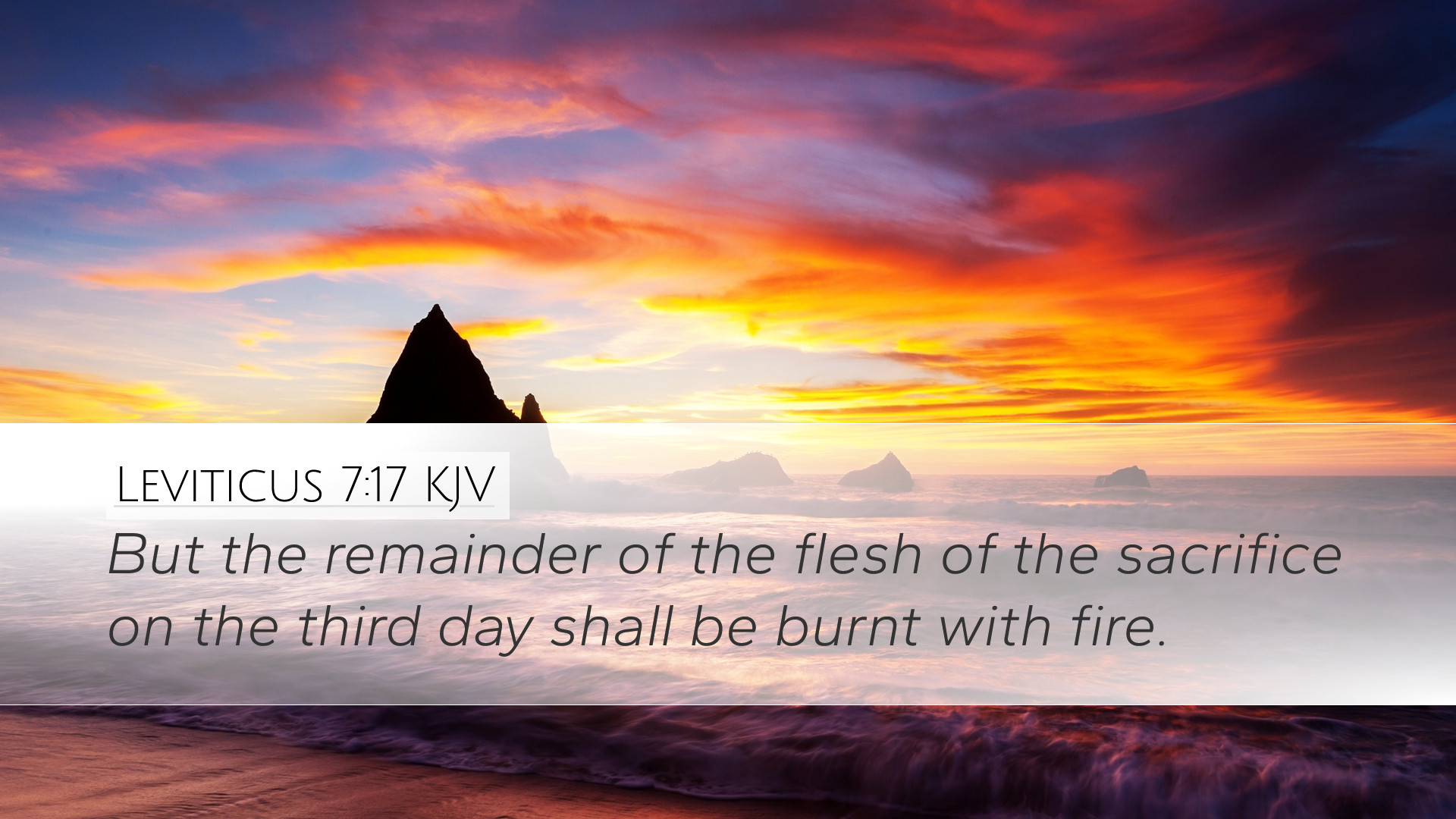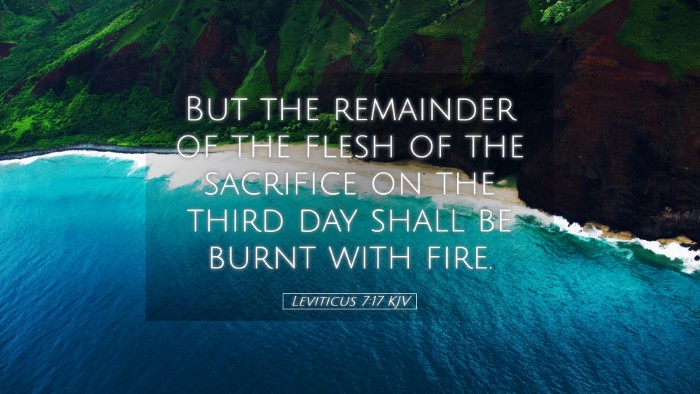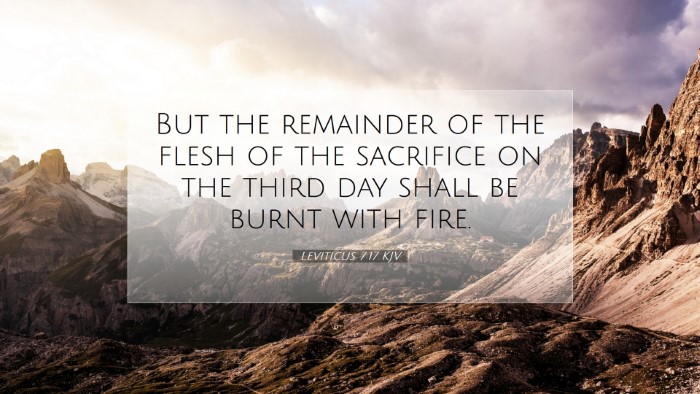Commentary on Leviticus 7:17
Verse: Leviticus 7:17 states, "But the flesh of the sacrifice of his peace offerings for thanksgiving shall be eaten the same day that it is offered; he shall not leave any of it until the morning."
Contextual Overview
The sacrificial system outlined in Leviticus provides vital insights into the relationship between God and His people. In this chapter, the focus is on the peace offerings, particularly those offered in a spirit of thanksgiving. It signifies a communal meal that serves as an act of worship and gratitude toward God.
Exegesis
This verse emphasizes the immediacy and the temporal nature of certain offerings. The requirement to eat the flesh of the peace offering on the same day it is presented underlines the notion of gratitude being an immediate response to God's goodness. Delaying the consumption of the offering could imply a lack of urgency in acknowledging God's blessings.
Insights from Matthew Henry
- Urgency in Thanksgiving: Henry posits that the requirement to eat the sacrifice the same day reflects the urgent nature of expressing gratitude to God. Delaying such an act would diminish the spiritual significance of the offering.
- Communal Worship: He notes that peace offerings often involved communal participation, reinforcing the idea that thankfulness is a collective act that strengthens the community of faith.
- Reiteration of Holiness: The offered sacrifice must be treated with honor and reverence, highlighting the holiness of God even in everyday communal meals.
Insights from Albert Barnes
- Symbolism of Peace Offerings: Barnes emphasizes that peace offerings symbolize peace with God, where the act of sharing the meal underscored the unity and fellowship between the offerer, the priests, and God.
- Encouragement of Community: He suggests that the limitations on the consumption of the sacrifice encourage a sense of urgency and community, reinforcing the importance of sharing God’s blessings.
- Reflective Application: Barnes draws parallels to modern worship practices, suggesting that contemporary believers should also engage with gratitude and communal celebration in their spiritual lives.
Insights from Adam Clarke
- Divine Command and Human Response: Clarke highlights that the command to eat the offering on the same day reflects the theological principle of immediate obedience to divine instructions, suggesting that God values our prompt acknowledgment of His grace.
- Practical Implications: He also points out that the prohibition against leaving the remnants until the morning serves practical implications, indicating the necessity of making resolutions in our spiritual practices that do not allow for procrastination.
- Spiritual Reflection: Clarke encourages deeper spiritual reflection on the nature of offerings today and how believers can cultivate a constant attitude of gratitude.
Theological Implications
The structure of the peace offerings, as noted in this verse, highlights key theological themes, such as mutual respect between God and His followers, the immediacy of faith responses, and the shared nature of community worship. The serious commitment to consume the peace offering on the same day teaches us about God's desire for genuine, heartfelt engagement in our worship practices.
Contemporary Applications
For today’s believers, Leviticus 7:17 serves as a reminder of the importance of expressing gratitude promptly and energetically. In a world where distractions can lead to delayed thankfulness, this passage encourages us to cultivate immediacy in our worship and community interactions:
- Celebration of Blessings: Christians are reminded to celebrate their blessings without delay, understanding that gratitude is not only an internal feeling but an external expression shared within the community.
- Commitment to Worship: The principle of consuming the offering reflects the call to a committed and active participation in worship rather than a passive observance.
- Fostering Relationships: Genuine gratitude fosters healthy relationships within the body of Christ, much like the peace offerings fostered unity among the offerer and the community.
Conclusion
Leviticus 7:17 encapsulates profound spiritual truths that transcend time and culture. By acknowledging the immediacy required in our responses to God's goodness, we commit ourselves to a life of continuous gratitude, active worship, and community engagement. As we study this passage, let us seek to understand how we can embody the principles of thankfulness in our daily lives, thus reflecting the heart of God in our relationships with Him and each other.


